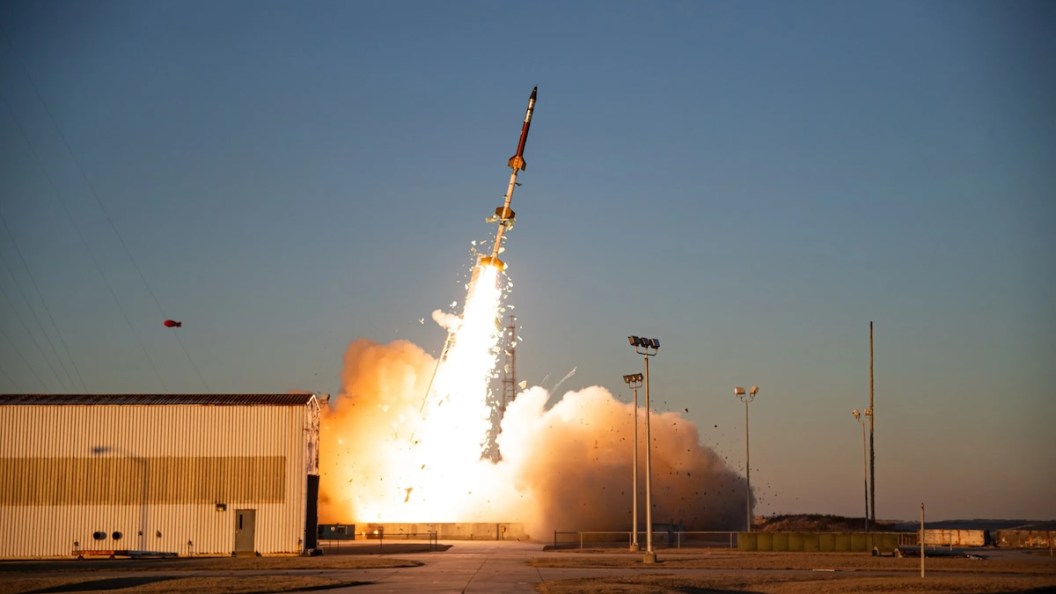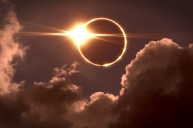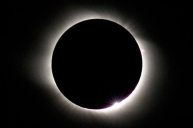During Monday's total solar eclipse, NASA will launch three rockets into space to study how the Earth's upper atmosphere is affected when sunlight dims over the planet.
In a statement, Aroh Barjatya, an engineering physics professor directing the Space and Atmospheric Instrumentation Lab and heading the mission, explained that his team will launch special "sounding" rockets at three different times during the eclipse and 45 minutes after.
According to NASA, sounding rockets have been used for more than 40 years to carry scientific instruments used, in this case, to study the ionosphere amid a sudden lack of sunlight. Barjatya described the ionosphere — the area of Earth's atmosphere between 55 to 310 miles above the ground — as "an electrified region that reflects and refracts radio signals, and also impacts satellite communications as the signals pass through."
"Understanding the ionosphere and developing models to help us predict disturbances is crucial to making sure our increasingly communication-dependent world operates smoothly," Barjatya said.
In other words, they're going to collect more data to examine how the eclipse interferes with radio and satellite communication and make adjustments to current models. According to NASA, scientists already know that when night falls, the ionosphere thins out as previously ionized particles relax and recombine back into neutral particles. Additionally, weather on both Earth and space also impacts said particles.
Barjatya said that scientists were able to launch rockets during the 2023 annual solar eclipse, but total solar eclipses are much rarer (the next one in the U.S. won't be until 2044). "We are super excited to relaunch them during the total eclipse, to see if the perturbations start at the same altitude and if their magnitude and scale remain the same," Barjatya said.
Learn more about how to watch the 2024 total solar eclipse here.




